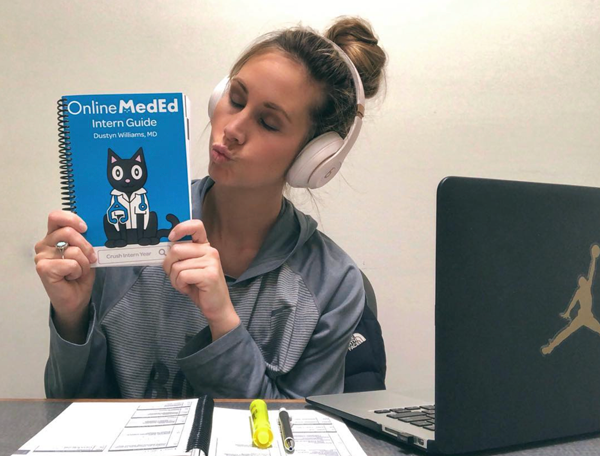“Time of death, 4:30 pm.” One week and two days into my intern year, I was the physician in the room. I was accompanied by one nurse, a respiratory therapist, two chaplains, thirteen family members, and one young man gone too soon. It was my first time being charged with the duty of overseeing the withdrawal of extraordinary measures. I pulled the last piece of equipment tethering this young man to life and pronounced the time of death. I cried in the bathroom afterward.
Medicine is often romanticized in the movies and media. But, delivering bad news or pronouncing time of death is no easy task. In fact, medicine is a very challenging life calling. It demands one’s time, mental focus, and physical stamina. Combine this with the emotional highs and lows that resemble the tracings of an EKG. Yet, the practice of medicine is also one of the greatest privileges and tremendously rewarding. Furthermore, a love for medicine overpowers all.
As the daughter of a physician, I discovered my love for medicine early. I looked forward to the opportunities to observe my dad in action. He transformed like a chameleon in each patient room he entered. In one room, he would discuss the recent Nascar race with a veteran while palpating his abdomen. In the next, he would discuss molecular physics with a professor while going over his medication list. Outside the confines of the hospital, I was constantly in awe at the number of people who approached my family. They would recount what a great physician my dad is and how he had saved their lives or their loved ones. He was able to make such an impact through medicine, and I wanted to be just like him — still do.
My love for medicine transformed when I discovered my complimentary love of neurology. It all began when I held a human brain in my own two hands for the first time. As a high school student, I marveled at the mysterious galaxy of cells that once communicated through a foreign language of neurotransmitters. My fascination with the anatomy and physiology of the most complex organ of the human body continued to grow during my college years as I studied neuroscience and conducted research on brain injury. Ironically, during my senior year, my fascination with neurology took a personal spin when I experienced a debilitating brain injury myself. With my new, unique perspective of the frustrations neurology patients face, I was convinced I would find even more joy in caring for neurology patients, as well as contributing to research that would further elucidate the mysteries of the “last frontier of medicine.”
As difficult as some days may be, it’s a distinct privilege to be a physician. It’s rewarding to get to know others as both patients and people. What an honor to walk with them through some of their most vulnerable moments. I feel extremely lucky that I not only discovered my love for medicine at an early age, but that I also found my niche in neurology — and I can’t imagine spending the rest of my life doing anything else.
Morgan Heinzelmann is currently a Neurology intern at UT Southwestern in Dallas, TX. After receiving her B.S. in Neuroscience at Davidson College, she completed a two-year research fellowship at the NIH, investigating traumatic brain injury in military personnel. She then received her M.D. degree from George Washington University. While she currently dreams of leaving her mark on the field of Sports Neurology through clinical care, research, education, advocacy, and policy, she is excited to be starting residency and open to wherever neurology takes her. When she isn’t in the hospital, she loves to travel, cheer for her Carolina Panthers, and stay active through dancing, boxing, and hiking. She can be contacted via Instagram (moheinz_md) or e-mail (mmheinzelmann@gmail.com)





